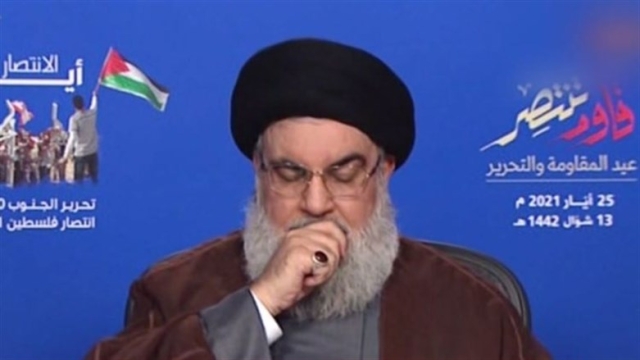Amidst a backdrop of heightened vigilance in the Israeli security establishment, anticipation is mounting for the upcoming speech by Hassan Nasrallah, the Secretary General of Hezbollah. The tension has been palpable for some time now, and recent events have only intensified it. Just yesterday, alarms rang out along the contact line with Lebanon as dozens of rockets were launched into Israel.
These developments have underscored a significant shift in the dynamics of the ongoing conflicts in the region. It is becoming increasingly evident that the current struggle is not confined solely to Israel and Hamas. Rather, it has evolved into a broader confrontation involving Israel and a coalition that includes Iran, Hezbollah, the Houthi rebels in Yemen, and various terrorist organizations in the Gaza Strip.
Hezbollah released another footage of Nasrallah preparing for his speech on Friday. pic.twitter.com/3qJ0G6pNZW
— #WakeupMuslims (@Visnaasheyy) October 31, 2023
At the outset of this complex situation, Defense Minister Yoav Galant initiated a comprehensive examination into whether the October 7th attack by Hamas was coordinated with Hezbollah. A team of experts was assembled to delve into this question, and their findings are expected to be made public in due course.
In response to the escalating tensions, the Israel Defense Forces (IDF) wasted no time. They announced a decisive and far-reaching operation aimed at eliminating Hezbollah's military infrastructure and assets. This operation involved airstrikes conducted by both planes and helicopter gunships, complemented by artillery barrages and tank fire. The targets of this offensive included key infrastructure, military headquarters, facilities linked to terrorism, rocket launch sites, and ammunition depots, as well as combat and military compounds used by Hezbollah.
Amidst the high alert status along the border, the IDF issued a comprehensive statement detailing the preparedness of its forces along the northern border. This included insights into defense efforts, training geared towards a potential northern conflict, and significant offensive operations in the border region. The statement emphasized the readiness of the Air Force, highlighting that a substantial portion of its capabilities is poised and equipped for rapid deployment in response to emerging threats.
🚨 𝗪𝗔𝗧𝗖𝗛: Hezbollah released a video of their fighters training.#GazaGenocide #Palestine #Israel #Gaza #Nasrallah #Hezbollah #حزب_الله pic.twitter.com/HvKKh0RzW3
— Globe Eye News (@GlobeEyeNews) November 3, 2023
While there is a prevailing sentiment within the Israeli security establishment that Nasrallah has not yet sought an all-out war with Israel, it is crucial to note that preparations are being made in response to Hezbollah's capabilities, rather than solely based on their intentions. This perspective reflects the lessons learned from the events of October 7th. Consequently, the IDF is planning to significantly bolster its presence along the border, and the Air Force is on a state of high alert, poised to respond to any developments in the north.


